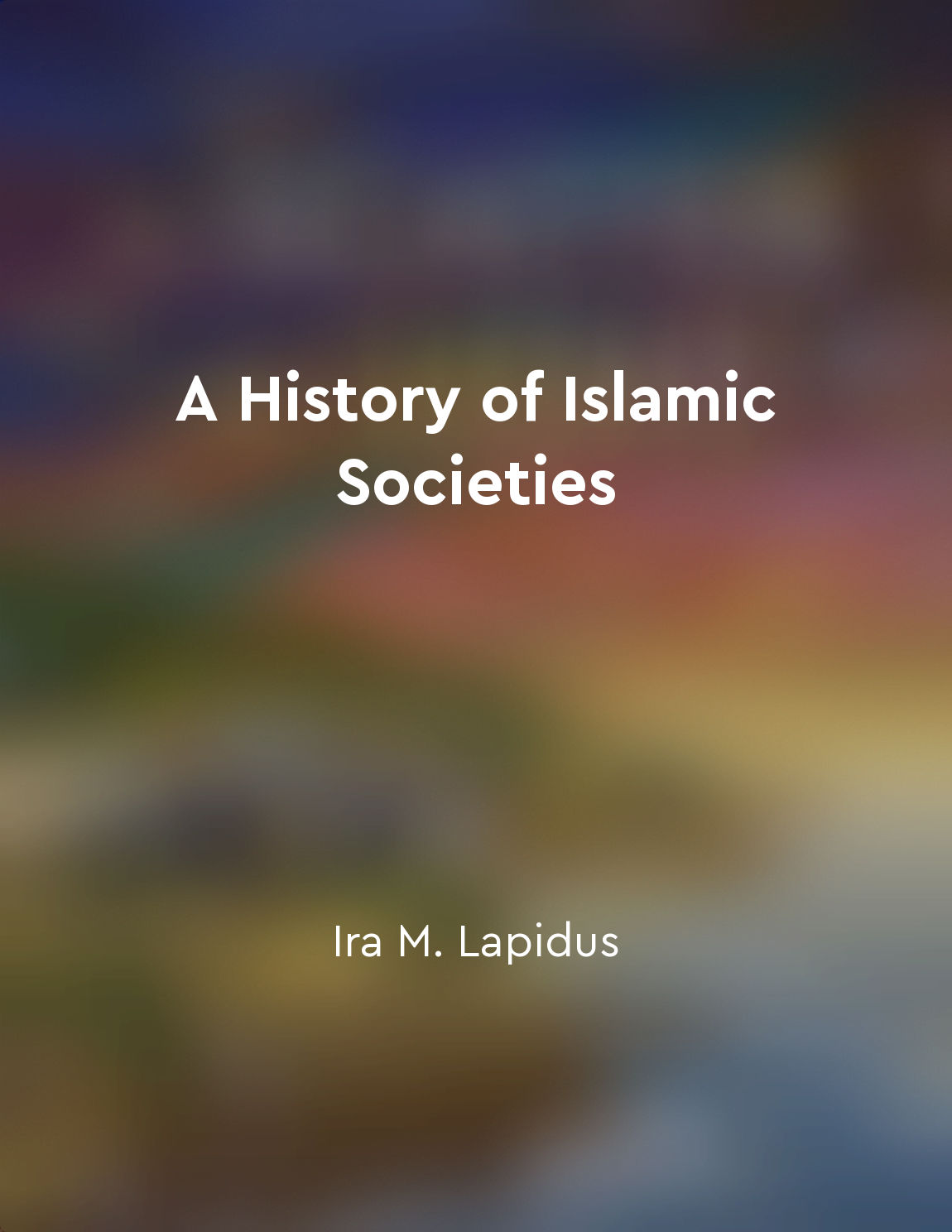The Ottoman Empire played a crucial role in shaping Islamic societies from "summary" of A History of Islamic Societies by Ira M. Lapidus
The Ottoman Empire exerted a profound influence on the development of Islamic societies over the course of several centuries. Through its expansive territorial control and administrative systems, the Ottomans played a crucial role in shaping various aspects of Islamic societies in the regions under their rule. One way in which the Ottoman Empire impacted Islamic societies was through its promotion of Sunni Islam as the state religion. The Ottomans established a system of religious institutions that supported and propagated Sunni beliefs and practices. This helped to standardize religious practices across diverse populations and regions, fostering a sense of unity and cohesion within Islamic societies under Ottoman rule. Furthermore, the Ottoman Empire's legal system, based on Islamic law (Sharia), had a lasting impact on the legal and judicial systems of Islamic societies. The Ottomans developed a sophisticated legal framework that incorporated elements of Islamic tradition with their own administrative practices. This system not only regulated various aspects of daily life, but also served to reinforce the authority of the state and promote social order within Islamic societies. In addition to religion and law, the Ottoman Empire also influenced the cultural and artistic expressions of Islamic societies. The Ottomans sponsored the construction of magnificent mosques, palaces, and public buildings, which served as symbols of the empire's power and prestige. These architectural achievements not only showcased the artistic prowess of Islamic societies under Ottoman rule, but also contributed to the cultural legacy of the region. Moreover, the Ottoman Empire's economic policies and trade networks played a significant role in shaping the economic structures of Islamic societies. The Ottomans established lucrative trade routes that connected various regions and facilitated the exchange of goods and ideas. This economic integration contributed to the prosperity and development of Islamic societies under Ottoman rule.- The Ottoman Empire's impact on Islamic societies was multifaceted and far-reaching. Through its promotion of Sunni Islam, development of legal systems, patronage of arts and culture, and establishment of trade networks, the Ottomans left a lasting imprint on the social, political, and economic fabric of Islamic societies in the regions they governed.


